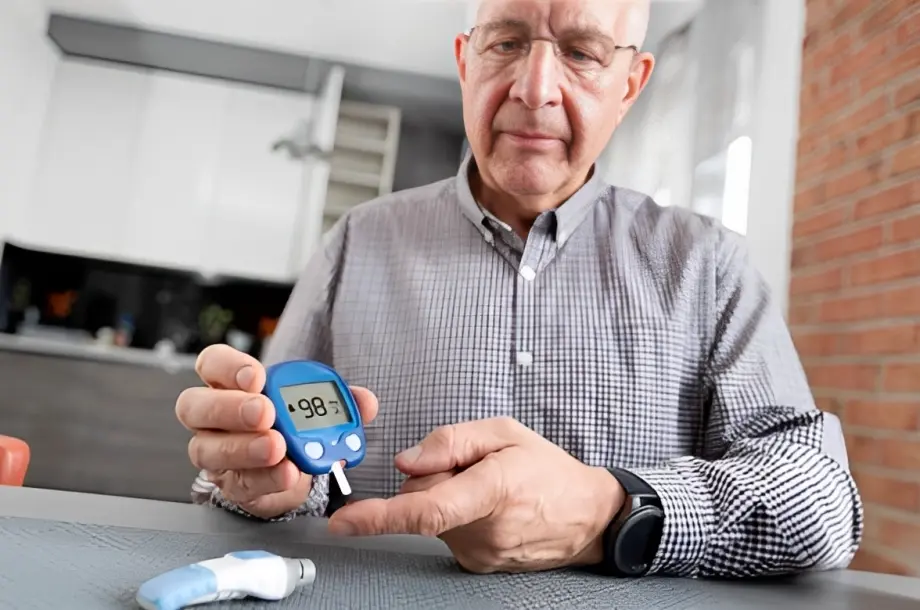World Diabetes Day (WDD) is observed every year on November 14. WDD originated in 1991 by the World Health Organization and the International Diabetes Federation to raise awareness about diabetes. And, with Thanksgiving being less than two weeks following WDD, it marks the perfect time to focus on diabetes and how to control and prevent this chronic disease!
Diabetes is estimated to affect 463 million people. Nearly 12 million of those affected by diabetes are age 65 and older, making diabetes awareness and education paramount to reducing serious complications from the disease amongst the elderly. Uncontrolled diabetes can lead to heart disease, kidney disease, dementia, vision problems, fatigue, bladder problems, wounds that don’t heal properly, and other serious health complications.
One of the most concerning complications of uncontrolled diabetes amongst elderly patients is the increased risk of lower extremity amputation. When a person with diabetes is injured and doesn’t heal properly, the area often gets infected. In cases of severe or extensive infection, amputation is often the only effective means of treatment.
At Emerest, we pride ourselves on educating our senior clients so they can live their happiest and healthiest lives. Keep reading to learn more about diabetes in the elderly and what you can do to prevent it.
What is Diabetes?

During digestion, our bodies break down most of the food we consume into glucose (sugar), which is released into the bloodstream. In turn, your blood sugar level increases, alerting your body to release insulin. Insulin allows the blood sugar to be released into your cells to be used as energy. Diabetes is a chronic disease that affects insulin production. A diabetic’s body will either produce too little insulin or cannot use the insulin it makes as well as it should. As a result, diabetic patients have a hard time controlling their blood sugar.
Often in the early stages of diabetes, patients have few if any symptoms at all. Mild symptoms may include excessive thirst, frequent urination, unexplained weight loss, fatigue, and blurred vision. If you notice any of these symptoms, consult a physician to be screened for diabetes as soon as possible. An early diagnosis can have a significant impact on the outcome of the progression of this disease.
What are the Causes?

Diabetes is often referred to as “type I” and “type II.” The major difference between type I and type II diabetes is whether the disease is a result of genetics or lifestyle choices.
Type I diabetes typically presents itself early in life and is a result of genetics. Patients with type I diabetes are usually prescribed insulin to control their blood sugar and manage their diabetes. Type II diabetes progresses over time and often isn’t diagnosed until age 40 or later. This type of diabetes generally results from improper diet and exercise. For that reason, in addition to being prescribed insulin, people with type two diabetes can also control their diabetes through proper diet and regular exercise.
Ways to Prevent It

Properly managing diabetes, whether you have type I or type II, dramatically reduces the chances of the disease progressing into more dangerous health conditions. One of the most effective ways to keep your diabetes under control is by maintaining a balanced diet that includes whole, minimally processed foods. Dr. Mohammad Aniff, Medical Director at EmerestConnect, states that elders who are looking to have a more balanced diet should focus on “eating more plant-based food and add fatty fish, like salmon, instead of meat.” These simple yet, highly effective behaviors can help keep your diabetes under control:
- Avoid high-sugar foods and choose low GI (glycemic index) foods
- Aim for at least 30 minutes of aerobic exercise per day • Use portion control to avoid overeating
- Maintain overall good health
- Manage your diabetes based upon your physician’s recommendations
- Take diabetes medications as prescribed
- Maintain proper hydration by consuming at least 6.5 cups of fluid per day
- Consult your physician if you notice any changes in your health
How We Can Help

Emerest is a leading provider of home care services for seniors. Our new telehealth sector, Emerest Connect, provides our clients with an array of healthcare services from the comfort of their own homes. We assist clients by providing medication management, therapy, remote vital tracking, and more. Interested in learning more about the telehealth services we offer at Emerest? Visit our Emerest Connect website at www.emerest.com/connect.